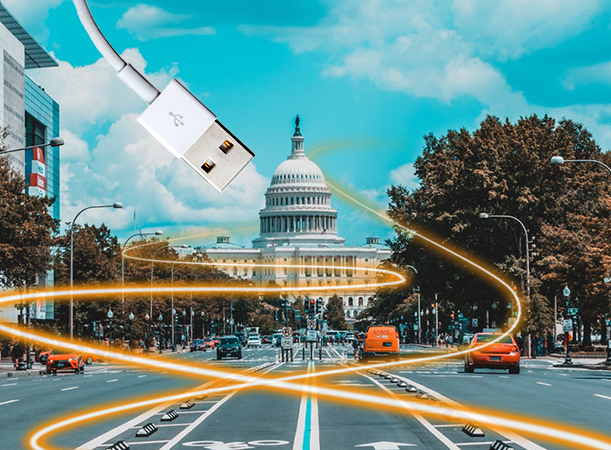How Government Regulations Stunt Startup Growth
|| Graphic by Bernadette Berdychowski
“I wanted to understand what incentives encourage someone to continue providing good and innovative products— that can change people’s lives,” Lyla Palagashvili said after an intimate lecture in the City Room at The King’s College on Tuesday night.
The researcher at NYU Law School came to share her findings after analyzing the success and failures of 108 startup founders across the U.S.
“We decided to focus on tech startups… It’s the heart of innovation,” she said.
After countless interviews, the consensus was clear: the biggest problem facing aspiring innovators was in “being able to hire foreign workers, particularly software developers.”
According to Palagashvili, competition and regulation make the process of hiring talent arduous for entrepreneurs. When in need of highly specialized employees, startups often have to search outside of the U.S, which adds a layer of complexity.
U.S law requires a skilled-worker visa for these outsourced employees.
“H1B Visas have a quota of only 85,000 people per year and it’s so…high in demand that the application opens every year in April and it closes five days after…If you look at the top ten employers sponsoring H1B Visas… they’re all tech companies: Amazon, Google, Intel, etc.”
“We decided to focus on tech startups… It’s the heart of innovation.”
-Lyla Palagashvili said.
Small tech startups struggle against corporate giants to compete for such a scarce allocation, and they do so at an incredible disadvantage.
“It’s a lottery system, and larger companies apply for one person, from different subsidiaries of their company, and that increases their chances of getting it,” Palagashvili explained. “One prospective employee for Google could have her name entered 20 times. A startup company simply does not possess that kind of leverage.
Because of this difficulty in hiring talent, tech startups often have to resort to a suboptimal approach: “contracting out [the work] instead of employing developers.”
This opens them up to risk of intellectual theft. Nothing stops a contracted worker from taking the idea and establishing his own business, “but they don’t have another choice.”
|| Photo Credit by Jillian Cheney
According to Palagashvili, tech startups also often operate in a “legal gray area… there’s a lot of regulatory uncertainty.” Entrepreneurs are often unsure which stipulations apply to them, “which category they fall into.”
Surprisingly, even in the face of these challenges, “U.S startup activity has been really high for the past 10 years.” Palagashvili explained.
While the regulations are endless and often confusing, “it’s really hard to enforce these.”
Throughout her interviews with 108 founders, she heard the same sentiments repeatedly: “We don’t really comply” and “we’ll deal with it later.”
“The idea here is we’re too small. If we don’t comply, they can’t find us. If we go big, we’ll have the money to fight them off.”
Simply put, the risk was worth taking for these eager entrepreneurs.
“It’s weird, it’s crazy. The startup world is a wild, wild west,” Palagashvili concluded.


